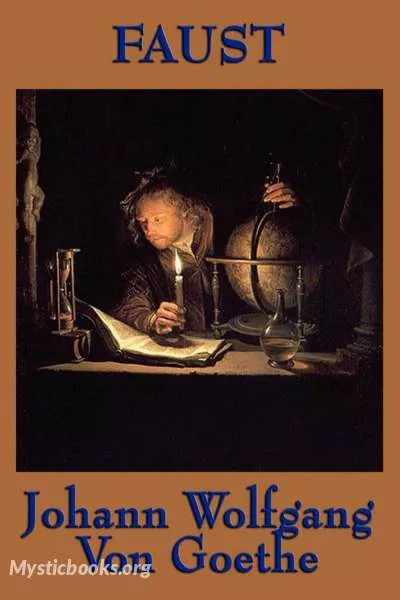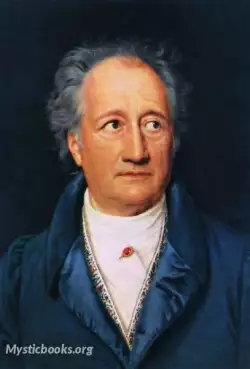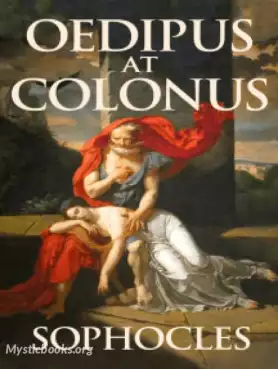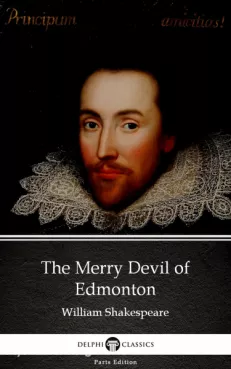
Faust I
'Faust I' Summary
The principal characters of Faust Part One include:
Heinrich Faust, a scholar, sometimes said to be based on Johann Georg Faust, or on Jacob Bidermann's dramatized account of the Legend of the Doctor of Paris, Cenodoxus; see also Faust
Mephistopheles, the Devil
Gretchen, Faust's love (short for Margarete; Goethe uses both forms)
Marthe Schwerdtlein, Gretchen's neighbour
Valentin, Gretchen's brother
Wagner, Faust's attendant
Faust, Part One takes place in multiple settings, the first of which is Heaven. The demon Mephistopheles makes a bet with God: he says that he can lure God's favourite human being (Faust), who is striving to learn everything that can be known, away from righteous pursuits. The next scene takes place in Faust's study where Faust, despairing at the vanity of scientific, humanistic, and religious learning, turns to magic for the showering of infinite knowledge. He suspects, however, that his attempts are failing. Frustrated, he ponders suicide, but rejects it as he hears the echo of nearby Easter celebrations begin. He goes for a walk with his assistant Wagner and is followed home by a stray poodle.
In Faust's study, the poodle transforms into Mephistopheles. Faust makes an arrangement with him: Mephistopheles will do everything that Faust wants while he is here on Earth, and in exchange Faust will serve the Devil in Hell. Faust's arrangement is that if he is pleased enough with anything Mephistopheles gives him that he wants to stay in that moment forever, then he will die in that moment.
When Mephistopheles tells Faust to sign the pact with blood, Faust complains that Mephistopheles does not trust Faust's word of honor. In the end, Mephistopheles wins the argument and Faust signs the contract with a drop of his own blood. Faust has a few excursions and then meets Margaret (also known as Gretchen). He is attracted to her and with jewelry and with help from a neighbor, Marthe, Mephistopheles draws Gretchen into Faust's arms. With Mephistopheles' aid, Faust seduces Gretchen. Gretchen's mother dies from a sleeping potion, administered by Gretchen to obtain privacy so that Faust could visit her. Gretchen discovers she is pregnant. Gretchen's brother condemns Faust, challenges him and falls dead at the hands of Faust and Mephistopheles. Gretchen drowns her illegitimate child and is convicted of the murder. Faust tries to save Gretchen from death by attempting to free her from prison. Finding that she refuses to escape, Faust and Mephistopheles flee the dungeon, while voices from Heaven announce that Gretchen shall be saved – "Sie ist gerettet" – this differs from the harsher ending of Urfaust – "Sie ist gerichtet!" – "she is condemned."
Book Details
Authors

Johann Wolfgang von Goethe was a German poet, playwright, novelist, scientist, statesman, theatre director, critic, and amateur artist. His works include: four novels; epic and lyric poetry; prose and...
Books by Johann Wolfgang von GoetheDownload eBooks
Listen/Download Audiobook
Related books

Adrienne Lecouvreur by Ernest Legouve
Adrienne Lecouvreur is a French tragic play written by Ernest Legouvé and Eugène Scribe. It portrays the life of the leading French actress of the eig...

How Salvator Won and Other Recitations by Ella Wheeler Wilcox
This collection of poems by Ella Wheeler Wilcox, titled "How Salvator Won and Other Recitations," presents a selection of her work specifically chosen...

Strange Gentleman by Charles Dickens
Strange Gentleman is a play by Charles Dickens. It is a comic burletta in two acts, and was Dickens's first play. The play is set in a village inn cal...

Theft by Jack London
This is a political play which is set in Washington DC. Howard Knox is a congressman and believes that there are corrupt practices going on at the fir...

The Devil's Disciple by George Bernard Shaw
The Devil's Disciple is an 1897 play written by Irish dramatist George Bernard Shaw. The play is Shaw's eighth, and after Richard Mansfield's original...

Pandora's Box by Frank Wedekind
Pandora's Box is a 1904 play by the German dramatist Frank Wedekind. It forms the second part of his pairing of 'Lulu' plays, the first being Earth Sp...

Oedipus at Colonus by Sophocles
Oedipus at Colonus is one of the three Theban plays of the Athenian tragedian Sophocles. It was written shortly before Sophocles's death in 406 BC and...

The Merry Devil of Edmonton by William Shakespeare
It is a captivating play filled with humor, romance, and supernatural elements. This lively and entertaining work showcases Shakespeare's unparalleled...

The Nō Plays of Japan by Various
Embark on a journey into the captivating world of Noh, Japan's oldest surviving theatrical tradition, with this comprehensive anthology of classic pla...

Shakespeare Monologues Collection vol. 05 by William Shakespeare
This is the fifth collection of monologues from Shakespeare’s plays. Containing 20 parts. William Shakespeare (April 26, 1564 – April 23, 1616) rema...
Reviews for Faust I
No reviews posted or approved, yet...